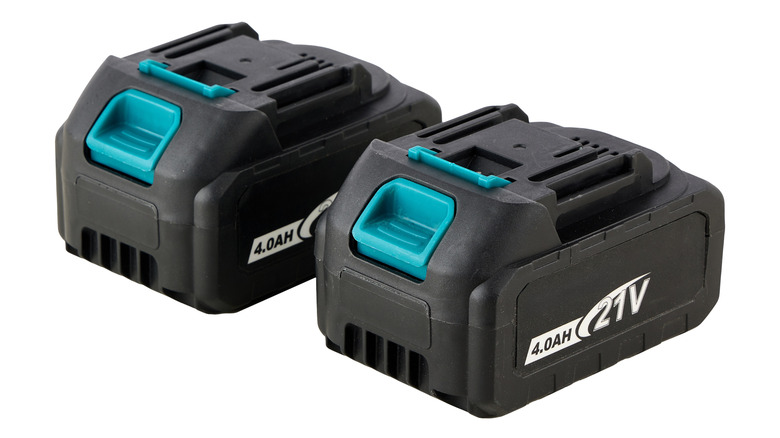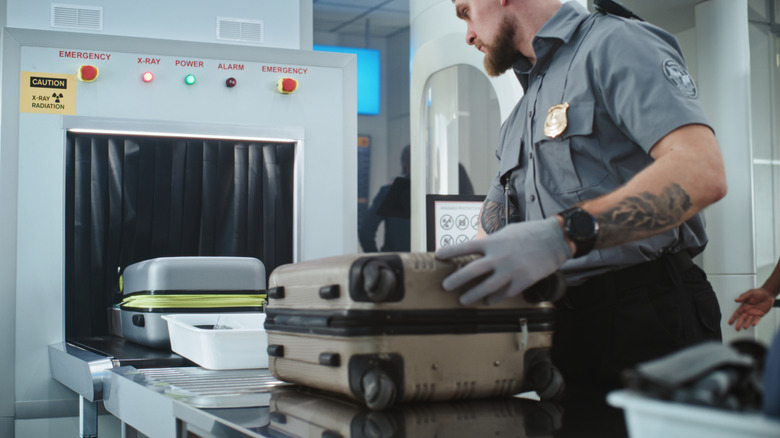Are Power Tool Batteries Allowed In Checked Luggage?
If you're planning to fly and curious about whether you can take your power tools along, you're probably also wondering what to do with the batteries. Can they go in your checked bag, or do they need to stay with you in the cabin? It's one of those questions that doesn't come up until you're packing, and the answer probably isn't as simple as you'd hope.
According to the Transportation Security Administration, or TSA, if you're keeping the batteries attached to the tools, you will have to pack them in a checked bag, while ensuring the tool cannot accidentally turn on. Whether you're taking tools or not, you'll have to keep any spare batteries with you in a carry-on, and the same goes for battery chargers that don't require electricity. Any damaged batteries should be left at home and if a battery has been affected by a power tool recall, you can get likely get more information from the airline itself before trying to bring it onboard.
But even when trying to pack smart and take the proper precautions, it's important to remember that you may not be out of the woods yet. The TSA officer going through your bags has the last word on whether or not any of your items, including power tool batteries, will be cleared through the checkpoint.
Power tool batteries are regulated onboard airplanes
Lithium-ion tool batteries must be stored safely as they can be dangerous under the right circumstances, whether on a plane or in your garage. The reason for that is the thermal runaway, a situation in which the battery starts to heat up on its own and keeps getting hotter, fast. This is due to chemical reactions inside the battery and can be caused by a short circuit, overcharging, or other damage.
Thermal runaway on airlines is such a concern that the US Department of Transportation's Pipeline and Hazardous Materials Safety Administration announced a new rule addressing it in February of 2019. While Lithium-ion batteries were still allowed onboard or in checked luggage, they were barred from being shipped as cargo on passenger aircraft. The rule was reaffirmed in January of 2023 and was still in effect as of June 2025.
According to the Federal Aviation Administration, or FAA, the number of Lithium battery incidents, defined as involving smoke, fire, or extreme heat, hit an all time high of 89 in 2024. While the FAA doesn't specifically single out power tool batteries, the number of battery pack incidents between March 3, 2006, and May 13, 2025, does rank at the top with a total of 245.

